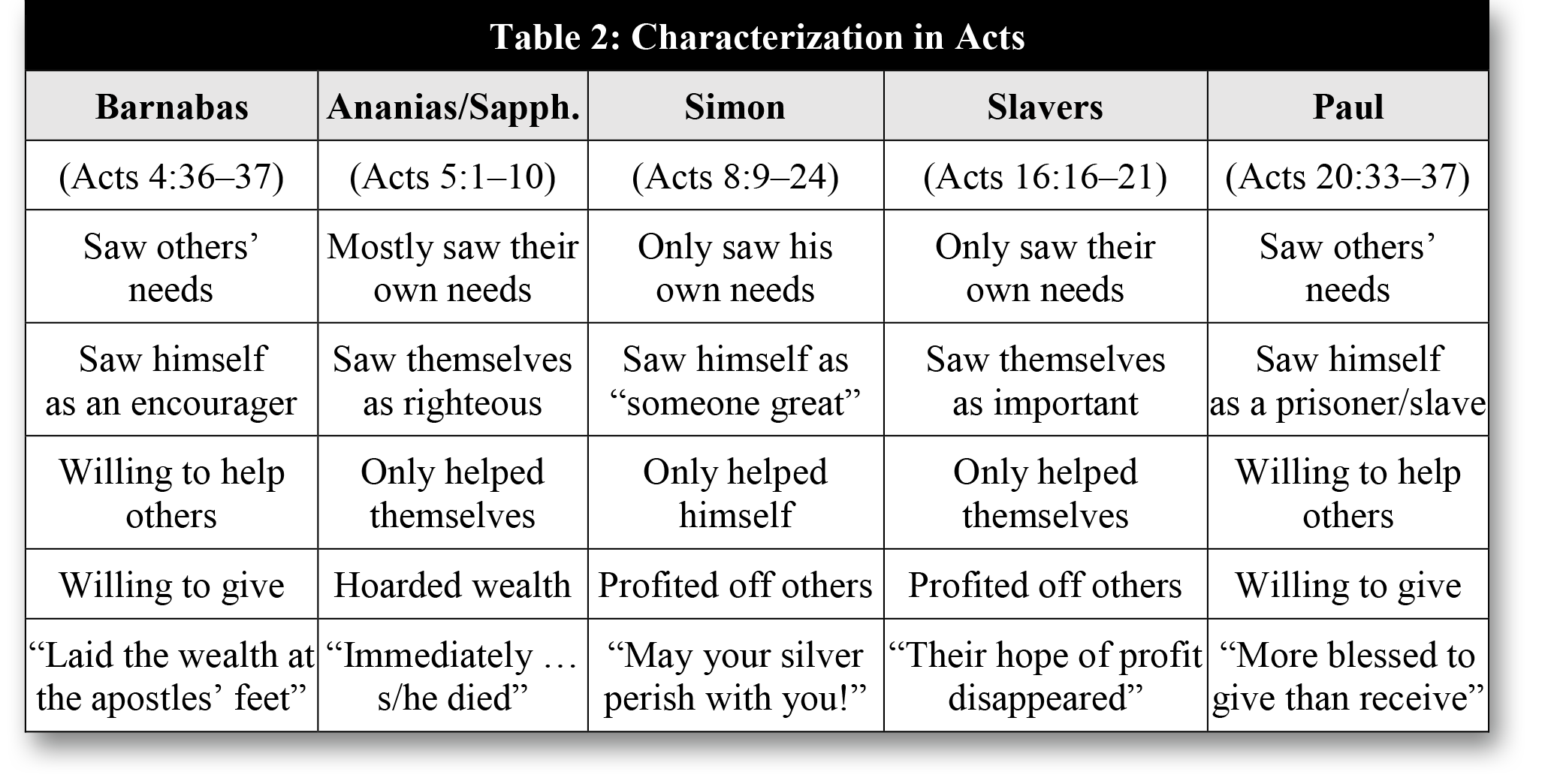Editor’s Note: This is part 3 of a multi-part series. Read Part 1 and Part 2.
How Does Acts Intersect with Faith, Work, and Economics (FWE)?
Luke-Acts is a two-volume work showcasing the life, ministry, and resurrection of Christ (Luke), and spread of the gospel (Acts). In my last article, we looked at how FWE intersects with Luke’s Gospel. Today, let us look at how FWE intersects with the Acts of the Apostles.
Acts can be outlined by the geographic gospel progression given in Acts 1:8—that is, to Jerusalem, Judea, Samaria, and the ends of the earth. Acts contrasts Christ’s benevolent, salvific work with the malevolent, enslaving work of Satan, who tries to squash Christ’s global gospel mission. The cosmic battle prophesied in Genesis 3:15 anticipates the satanic opposition to Christ’s work in Acts.
Like he does in his Gospel, Luke contrasts positive examples (e.g., Barnabas and Paul)—regarding the characters’ use or abuse of possessions—with negative examples (e.g., Ananias/Sapphira, Simon the sorcerer, and the slavers of Acts 16). Table 2 illustrates this contrast below.

Luke contrasts the response of Barnabas (“son of encouragement”) with that of Ananias (“YHWH is gracious”) and Sapphira (“beautiful”). Barnabas was willing to give all for Christ’s work—laying his property proceeds at the apostles’ feet (Acts 4:37). The deceptive darkness of Ananias’s and Sapphira’s hearts showed through their superficial veneer of religiosity (Acts 5:3). Their giving was neither “gracious” nor “beautiful” in God’s eyes. Simon and the slavers were merely self-serving: Simon wanted to profit off the Holy Spirit’s power (Acts 8:18–24), while the slavers profited off the demon-possessed slave-girl’s plight (Acts 16:16). Conversely, Paul worked with his own hands in serving Christ and others at any cost (Acts 20:34; 21:13; 28:20).
Paul’s missionary work, and that of his associates, cost nearly four years’ wages each.
How Can FWE Be Incorporated in a Course on Acts?
A one-semester course studying Acts or Luke-Acts and FWE is feasible in a seminary or Sunday School (SS) setting. Some questions that could be addressed from Acts include:
- “Does Acts teach that all Christians are to be poor?”
- “What do we glean regarding FWE by studying Luke-Acts together?”
- “Does Acts 2–5 teach proto-communism or socialism?”
- “What is descriptive, and what is prescriptive in Acts?”
- “What does Acts teach us regarding labor as an investment in God’s kingdom?”
- “How did Paul’s work ethic benefit his life and others?”
- “How does the development of FWE in Acts compare or contrast with that of Luke’s Gospel?”
- “How can FWE inform the unity debate of Luke-Acts?”
Again, group presentations could develop and foster a collaborative community of learners and teachers.
How Does the Presentation of FWE in Acts Intersect with the Great Commission (GC)?
When read together, Luke 24:44–49 and Acts 1:8 display several themes that inform our understanding of FWE. First, God is faithful—Christ’s Passion, death, and resurrection fulfilled the OT Messianic promises/prophecies. Second, the Passion, resurrection, and repentance/forgiveness of sins are Luke’s core gospel tenets. The church’s chief vocation is to globally preach the gospel—beginning in Jerusalem (Luke 24:47), to the ends of the earth (Acts 1:8; 20:24). Third, Acts presents salvation and redemption in economic terms: God purchased his Bride with his own blood (Acts 20:28). Fourth, the progressive spread of the gospel is costly. According to data obtained from Stanford’s ORBIS site,[1] Paul’s three missionary journeys lasted 245 days at a cost of 1,032 denarii (about 1,032 days’ wages) per person. In other words, Paul’s missionary work, and that of his associates, cost nearly four years’ wages each. The IMB states that it costs an average of $119,000 per couple to be on the mission field full-time.[2] If Luke wanted all Christians to be poor, then full-time global missionary work would be impossible for Christians of the first-century and today.
Synthesis and Concluding Thoughts
These three essays have attempted to propose a curriculum on Luke-Acts and FWE, as well as disprove the notion that Luke wants all Christians to be poor. Rather, Luke-Acts highlights—in real-world, practical ways—God’s mission in spreading the gospel globally. FWE is an important part of God’s mission, and a course on Luke-Acts can highlight the numerous, salient examples God gives us regarding the use and abuse of possessions.
Editor’s Note: This article is an installment in the FWE Curriculum Project.
[1] http://orbis.stanford.edu. Cf. https://www.openbible.info/blog/2012/07/calculating-the-time-and-cost-of-pauls-missionary-journeys.
[2] https://www.imb.org/faq.



No comments have been added.